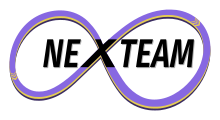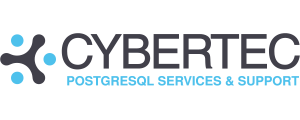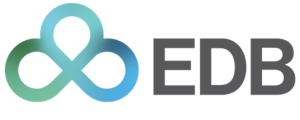Interview with CYBERTEC
Find out more about our sponsor CYBERTEC
Any views or opinions represented or expressed in this interview belong solely to the interviewee and do not necessarily represent those of the 2024 organization, PostgreSQL Europe, or the wider PostgreSQL community, unless explicitly stated.
What makes your company a great place to work?
I believe that a lot boils down to experience. We have been in this sector for over 20 years and together we have hundreds of years of PostgreSQL experience.
What do you think are the next biggest challenges for PostgreSQL in the future?
My biggest concern for the project at the moment is the threat of being taken over by the hyperscalers. In most cases, these hyperscalers do not run vanilla PostgreSQL, and I get the feeling that many players in this field are not committed to true Open Source and proper community-driven development. My fear is that development might end up being more fragmented than it used to be.
I also see the influx of too much VC and ever-changing VC strategies as being of no benefit to the project.
What is the most important feature in the latest PostgreSQL release?
This is hard to say. I think it is the unity of all features that make PostgreSQL so great.
Where is the database world heading, how will PostgreSQL evolve?
I think that many countries and organizations are starting to understand that Open Source does matter. We will increasingly see large, strategic infrastructure running PostgreSQL. In many cases, this is already happening, but it will continue to grow more and more.
Let me give an example: If you are running the Suez canal, a country’s police, international harbors, and such, what you want is to keep operations going - no matter what the political situation in the rest of the world might look like.
What many are beginning to understand is the importance of “digital sovereignty”, and that is exactly what true Open Source PostgreSQL has to offer. We will see technical contributions from many more places in the world, and that is a good thing because it provides long-term stability. On the other hand, we of course see the negative impacts of shortsighted and fairly short-term VC.
Overall, I am really confident because I believe in the end, Open Source is so powerful that it will provide technical opportunities we simply cannot dream up yet. There is a lot of technical innovation on our way which is hard to predict. I think PostgreSQL has a greater future than ever before.
What feature should be added to PostgreSQL?
We need a more vectorized executor and column stores in core.
Which PostgreSQL extension do you benefit from most, and why?
I love pg_squeeze because it helps people to fight table bloat without downtime.
How do you see AI changing the database world over the next few years?
I thought long and hard about the AI side of things. “All will be AI” is definitely wrong, and “AI doesn’t matter” is wrong too, in my judgment.
Why is that?
Many things in the database business are “boring bookkeeping”. Price lists, GPS tracks, time series - essentially this is bookkeeping, and there is no innovation or AI in ” SELECT avg(weight) FROM container_20ft” … counting, grouping, searching - there is no need for any of this.
But there are many areas around PostgreSQL where AI does make a lot of sense, though this is more on the tooling and analytics side of things. But let’s stay realistic: 30 years ago, a guy went to a parking lot and counted: “5 cars”. Then database people came along, and the parking lot still contained 5 cars. After data warehousing, map reduce, data lake, NoSQL and all other life changing hypes … still 5 cars in the parking lot.
The next hype will come, and trust me: the end result will be: “5 cars in the parking lot”. With every hype, new tools are added, but that does not mean that everything else becomes obsolete.






